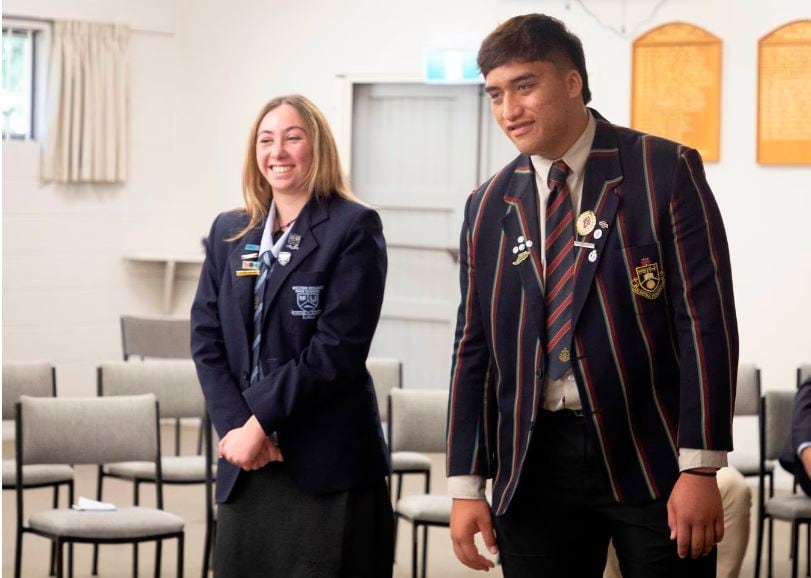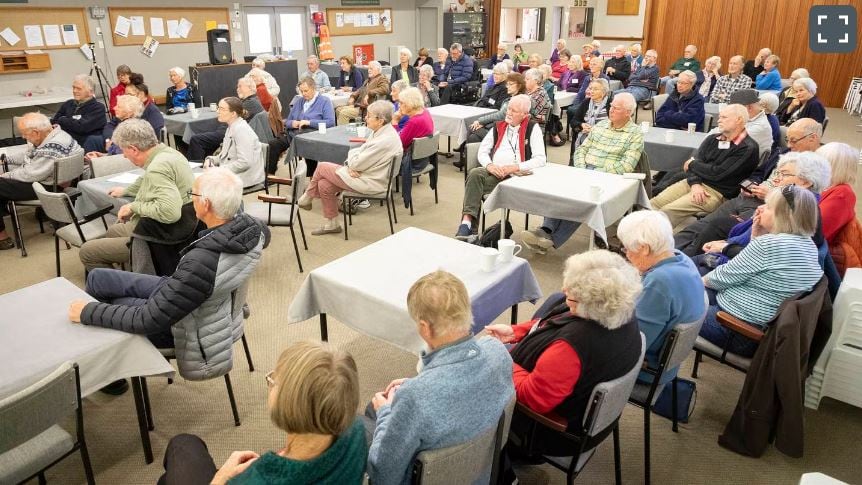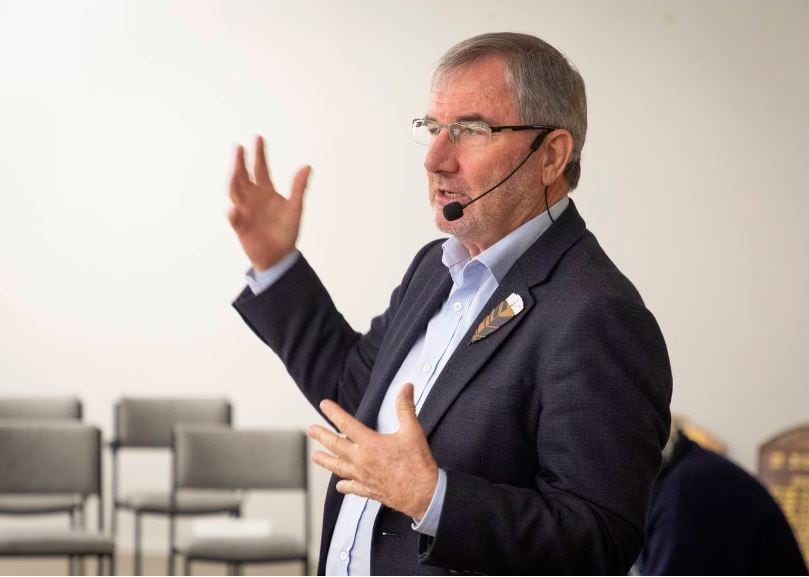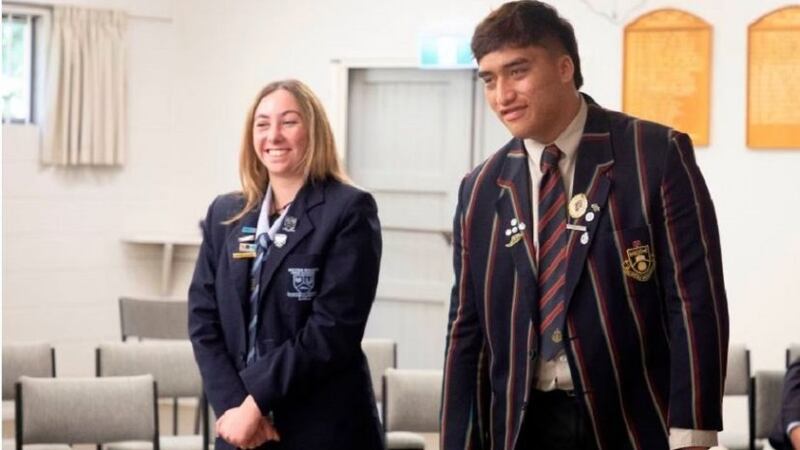Western Heights High School head girl Maia Rangiahua and Rotorua Boys' High head boy Te Haihua Simon-Panapa. Photo / Andrew Warner
By Michaela Pointon, Rotorua Daily Post
A future where past wrongs are acknowledged, where cultures are respected and valued, and knowledge is shared.
Those were some of the hopes and aspirations teen leaders shared with city elders at U3A forum earlier this week that aimed to bridge the generational gap.
The forum aimed to highlight the importance of young voices in any discussion about the future both on a national and global level.
Western Heights High School head girl Maia Rangiahua said she was hopeful for the country’s future.
“If you think about how the future is presented currently to us, it looks grim ... [It] seems to suggest the world is going to be dystopian ... harsh and uncaring.
“But have you noticed there’s always one young person who has helped?”
She said whether it was wars or pandemics there was no “normal”.
“Our world is changing all the time.”
A united future for Rangiahua was one in which past wrongs were acknowledged and culture and heritage were respected.
She believed working together as a “global community” and sharing knowledge was crucial for the future.
“Passing traditions from loved ones before us should be encouraged, as well as embracing the new and exciting discoveries that we are all making every day.”
She said learning was an endless journey.
“Knowledge shouldn’t be guarded but shared. Education is empowering and should be valued.
“I believe that young people’s voices are important because we have a lot to offer. I think our voices need to be heard so that we can contribute to how our future looks.”

Photo / Andrew Warner
Rotorua Boys’ High head boy Te Haihua Simon-Panapa said he hoped New Zealand would be a country that was “proud of its unique indigenous culture”.
He wanted a future where “it doesn’t matter what ethnicity or cultural background you come from” and hoped te reo Māori was spoken freely by New Zealanders.
Western Height High School principal James Bracefield said increasing student agency in the ownership of their learning would allow more critical thought and a skill set that would set them up for the future.

A Rotorua U3A public forum listening to young people speak about their hopes for the future. Photo / Andrew Warner
Professor Emeritus Paul Spoonley said it was important for elders to remember they were “gifting the world to new generations”.
Strengthening communication skills with youth might require a change in perspective.
“[Let’s] make their lives as good a life as the ones we’ve had.”

Professor Emeritus Paul Spoonley said it was important for elders to remember they were “gifting the world to new generations”. Photo / Andrew Warner
Youth need to be brought into community conversations “much more”, he said. Young people’s voices were important to consider for a positive national and global future.
“You don’t hear them in the media and I don’t think our local authorities, many of our leaders, many of our older communities, actually hear them.
“They might hear [about] them at a birthday party, but they don’t hear what their ambitions are, what their hopes are.”
It was important for elder generations to “listen and be challenged”.
“It’s an overlooked part of our community.
“I think [what] we need to do much more deliberately is use the experiences and the skills and the wisdom that older people have to support the younger people.
“Younger people need to be given an opportunity to speak to older people just to outline what they want to do.”
People would “sit in their living room, watch television, watch the ram raids, watch some of the negative behaviour, and then condemn younger people, young people in New Zealand”.
Spoonley said, in his experience, young people were “outstanding”.
“They’re committed. They’re smart. They’re doing things in very different ways. We need communities, particularly older communities, to understand that.”
Young people have been seen “coming together themselves” through environmental protests.
“The other interesting thing which is probably more invisible, is what they’re doing online.”
Spoonely said some politicians, community groups, and some school-age groups had been online and “beginning to share notes, influence people to have a voice and debate”.
The opportunity for local Rotorua U3A members to meet with youth meant the group could see young people with ambitions in the region, Spooley said.
It was important for elder generations to remember there could be miscommunication between generations due to language barriers.
“[The way] things are important to you and the way you phrase them don’t necessarily make a lot of sense to some younger people.
“Don’t take silence as not interested.”

